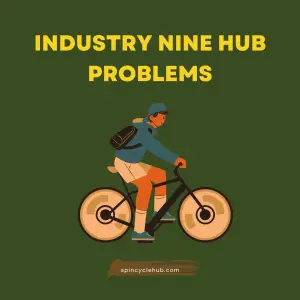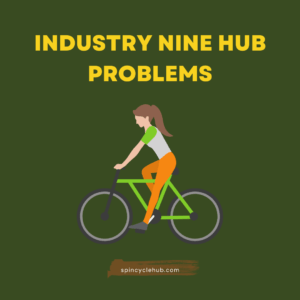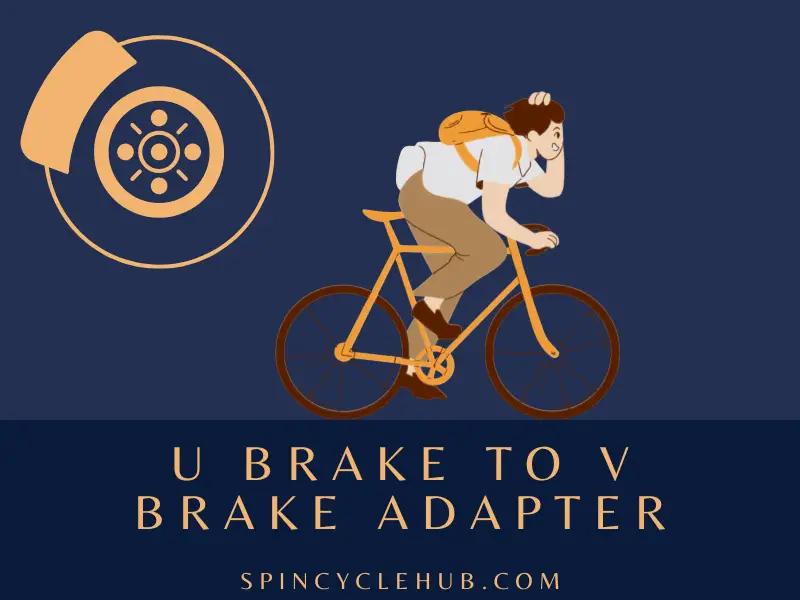Introduction
When it comes to cycling enthusiasts, one component that often captures their attention is the Industry Nine hub. Renowned for its sleek design, high-quality craftsmanship, and impressive engagement, Industry Nine hubs have gained a loyal following. However, like any mechanical device, they are not without their share of problems. In this article, we will explore the common issues faced by Industry Nine hub users and provide valuable insights on troubleshooting and prevention.
Understanding the anatomy of an Industry Nine hub
To truly comprehend the challenges associated with Industry Nine hubs, it is important to delve into their inner workings. These hubs consist of several key components that work together to deliver exceptional performance.

The core components of an Industry Nine hub
1. The pawls and driver mechanism: The heart of the hub
At the center of an Industry Nine hub lies the pawls and driver mechanism, which is responsible for engagement. The pawls are small metal teeth that engage with corresponding notches on the driver, enabling power transfer from the rider’s pedal strokes to the wheel. The number of pawls and their engagement angles can vary depending on the specific model of the hub.
2. The bearings: Keeping things rolling smoothly
Another critical component of the Industry Nine hub is the bearings. These are responsible for ensuring smooth rotation of the hub and reducing friction. Industry Nine hubs typically employ high-quality sealed cartridge bearings, which require regular maintenance to prolong their lifespan and optimize performance.
Common issues faced by Industry Nine hub users
While Industry Nine hubs are known for their reliability, users may encounter some common problems during their ownership.
Issue 1: Engagement problems
One of the issues that can arise with an Industry Nine hub is engagement problems. Riders may notice symptoms such as delayed or inconsistent engagement, where the hub takes longer to engage or fails to engage smoothly. This can be frustrating and affect overall riding experience.
Potential causes of engagement problems can include worn or damaged pawls and springs or inadequate lubrication and debris accumulation within the mechanism. Fortunately, troubleshooting these issues is relatively straightforward. Regular cleaning and lubrication of the pawls and driver can help restore proper engagement. If the components are excessively worn, replacing them may be necessary.
Issue 2: Bearing issues
Bearing issues can also plague Industry Nine hubs. Signs of bearing problems may include excessive play or rough rotation, as well as grinding or clicking sounds while riding. These issues can indicate contamination from dirt, water, or debris, as well as inadequate or improper bearing maintenance.
To address bearing issues, it is crucial to regularly clean and regrease the bearings. This involves removing the seals, cleaning the bearings with a suitable solvent, applying fresh grease, and reassembling the hub. In some cases, if the bearings are severely damaged, they may need to be replaced.
Issue 3: Freehub body damage
Freehub body damage is another concern that can affect Industry Nine hubs. This problem is typically characterized by notching or grooves on the freehub body, which can lead to freewheeling issues or skipping under load. Freehub body damage can occur due to cassette cog digging into the body or insufficient lubrication and maintenance.
Preventing and addressing freehub body damage involves regular inspection and cleaning. Keeping the freehub body well-lubricated and using appropriate torque specifications during cassette installation can help minimize the risk of damage.
Issue 4: Spoke tension and wheel truing
Proper spoke tension and wheel truing are crucial for maintaining a well-functioning Industry Nine hub. Inadequate spoke tension or unbalanced wheel truing can result in various problems, including compromised hub performance and increased stress on hub components and spokes.
Regular wheel inspections and truing are essential to maintain optimal spoke tension and wheel trueness. This process involves adjusting spoke tension to achieve proper balance and alignment. Seeking professional assistance or learning the art of wheel truing can greatly benefit riders in this regard.
Issue 5: Noise and vibrations
Unusual noises and vibrations can be a source of frustration for Industry Nine hub users. Rattling, clanking, or humming sounds, along with vibrations felt through the bike frame, can indicate underlying issues. Loose or worn hub components and misaligned or loose spokes are common sources of noise and vibrations.
Resolving these issues requires tightening hub components and spokes to eliminate any play or looseness. Ensuring proper wheel alignment is also crucial to mitigate noise and vibrations.
Tips for avoiding and mitigating Industry Nine hub problems
While encountering problems with Industry Nine hubs is not uncommon, there are steps you can take to minimize their occurrence and mitigate their impact. Here are some valuable tips:
Regular maintenance and cleaning
Perform regular maintenance and cleaning of your Industry Nine hub. This includes cleaning the hub internals, regreasing bearings, and inspecting components for wear or damage. Following manufacturer guidelines for maintenance intervals is essential.
Proper installation and torque specifications
Ensure proper installation of the hub and adhere to recommended torque specifications for fasteners. This helps maintain the integrity of the hub and prevents issues arising from improper installation or over/under-tightening.
Using recommended lubricants and greases
Use recommended lubricants and greases specifically designed for the hub components. Applying appropriate lubrication to pawls, bearings, and other relevant parts helps minimize friction and prolong their lifespan.
Seeking professional help when needed
If you encounter persistent issues or lack the necessary skills and tools for hub maintenance, it is advisable to seek professional help. Experienced bike mechanics can provide expert servicing and repairs to keep your Industry Nine hub in top shape.

Conclusion
Industry Nine hubs have earned their reputation for delivering exceptional performance and engagement. However, like any cycling component, they can encounter problems over time. By understanding the common issues faced by Industry Nine hub users and following proper maintenance practices, you can enjoy the full potential of these hubs while minimizing disruptions to your riding experience.
FAQs
1. Q: How often should I clean and regrease the bearings of my Industry Nine hub?
– A: It is recommended to clean and regrease the bearings at least once a year, depending on your riding conditions and frequency.
2. Q: Can I use any lubricant for the pawls and driver mechanism?
– A: It is best to use the lubricant recommended by Industry Nine for optimal performance and compatibility with the hub’s components.
3. Q: How can I tell if my Industry Nine hub’s pawls are worn and need replacement?
– A: Excessive play or skipping during engagement can indicate worn pawls. If you’re unsure, consult a bike mechanic for a professional assessment.
4. Q: Is it necessary to retension the spokes of my Industry Nine hub’s wheel regularly?
– A: Yes, regular wheel inspections and spoke retensioning are recommended to maintain proper wheel trueness and prevent issues.
5. Q: Should I attempt to repair my Industry Nine hub myself, or is professional help necessary?
– A: If you have the skills, knowledge, and appropriate tools, you can perform basic maintenance. However, for complex repairs or persistent issues, professional help is advised to avoid further damage.
- “Industry Nine Hub Maintenance Guide“ – This comprehensive guide provides step-by-step instructions and tips for maintaining and troubleshooting Industry Nine hubs:
- “How to True a Bicycle Wheel“ – This article offers detailed guidance on wheel truing, an essential aspect of maintaining proper spoke tension and wheel alignment:
Watch this one,
Video Credits – MTBdropIN
DOWNLOAD THIS ARTICLE :Click Here
You May Also Like



